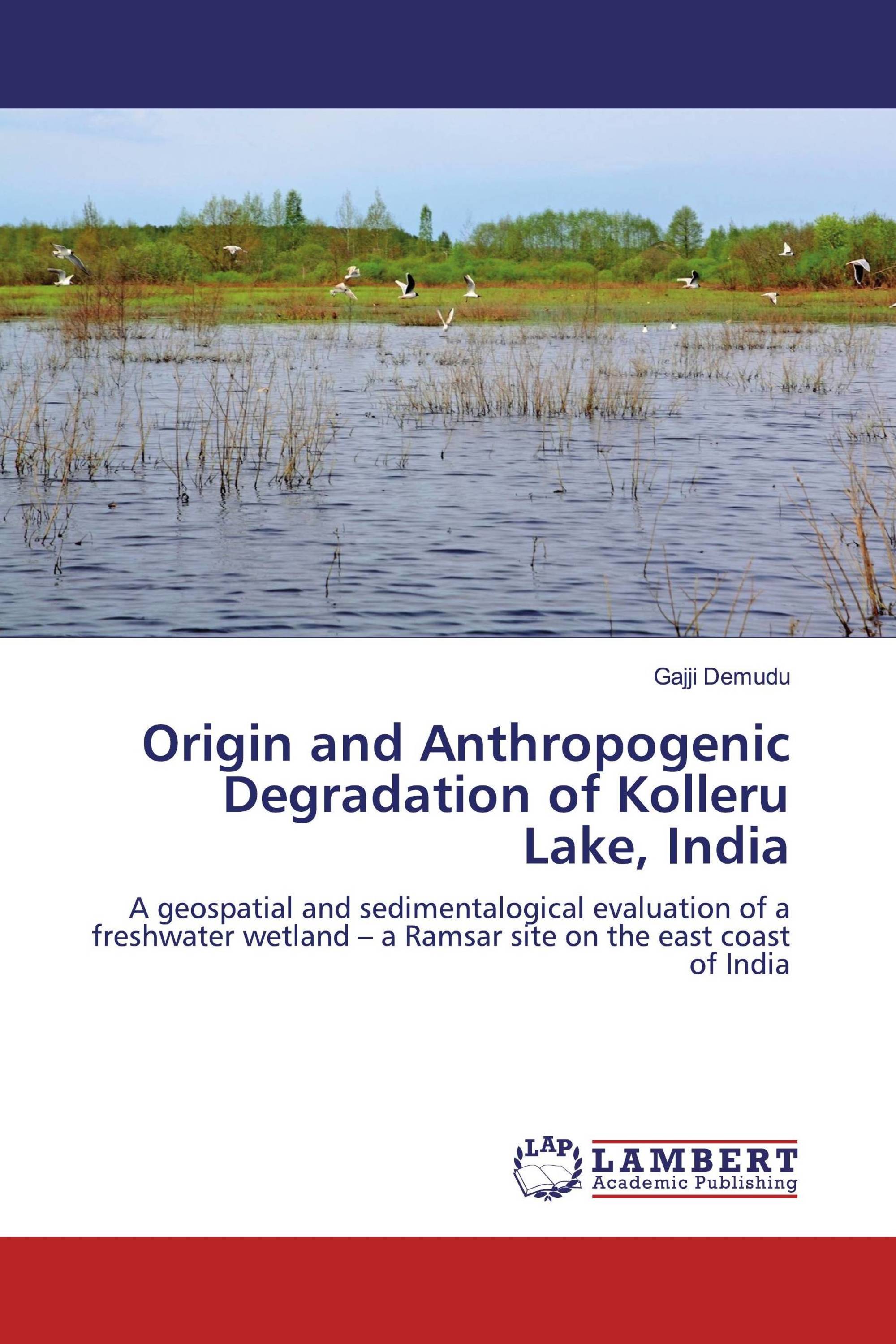Origin and Anthropogenic Degradation of Kolleru Lake, India
A geospatial and sedimentalogical evaluation of a freshwater wetland – a Ramsar site on the east coast of India
LAP Lambert Academic Publishing ( 2020-02-01 )
€ 71,90
Kolleru Lake, a shallow freshwater wetland, serves as a flood-balancing reservoir, a haven for migratory birds and source of livelihood for the local communities. This book is a treatise on the Holocene origin and the present degraded state of this important Ramsar site. Landform mapping revealed a series of sandy beach ridges in the 30-km coastal belt between Kolleru Lake and the present shoreline suggest that the lake was a coastal lagoon in the past. Lithostratigraphy of shallow borehole sediments indicated that the lake was three times larger than its present size in the past occupying more than 1000 km2. The presence of marine clay with peat layers containing abundant mangrove pollen in the subsurface sediments, supplemented by radiocarbon dates pointed to the mid-Holocene origin of the Kolleru Lake as a coastal lagoon. Large scale encroachments for commercial aquaculture have almost defaced the lake during the recent decades. The geospatial and sediment analysis techniques explained in this book are useful for researchers for making an objective assessment of the changing environments of wetland ecosystems.
Book Details: |
|
|
ISBN-13: |
978-620-0-56203-6 |
|
ISBN-10: |
6200562032 |
|
EAN: |
9786200562036 |
|
Book language: |
English |
|
By (author) : |
Gajji Demudu |
|
Number of pages: |
176 |
|
Published on: |
2020-02-01 |
|
Category: |
Geosciences |




